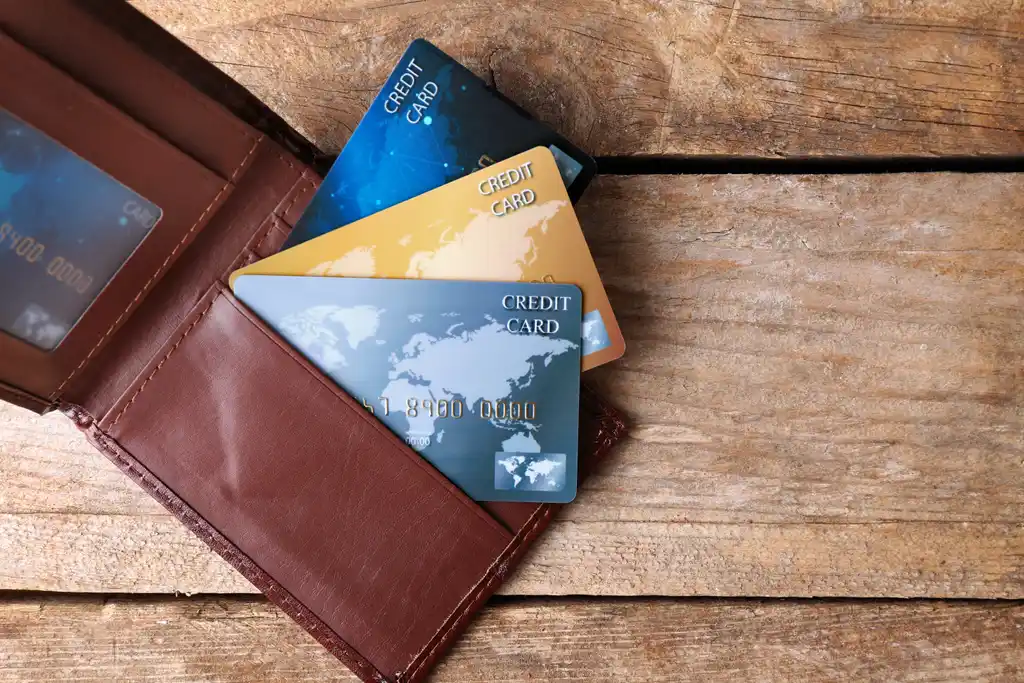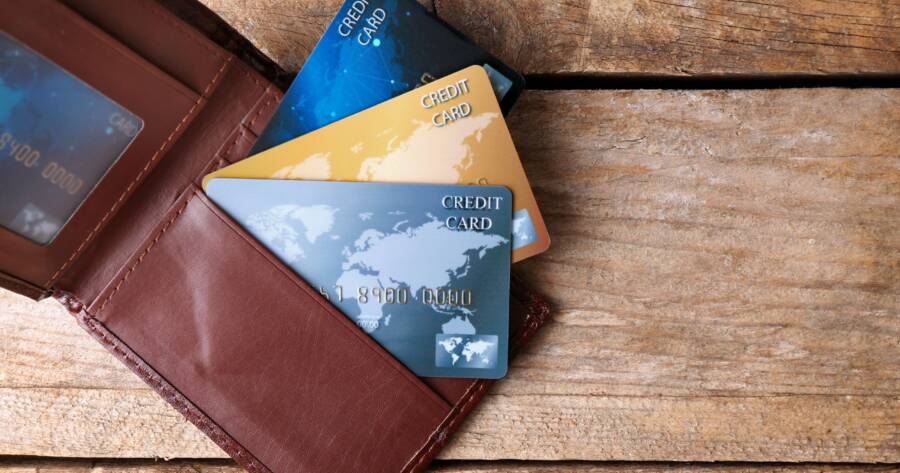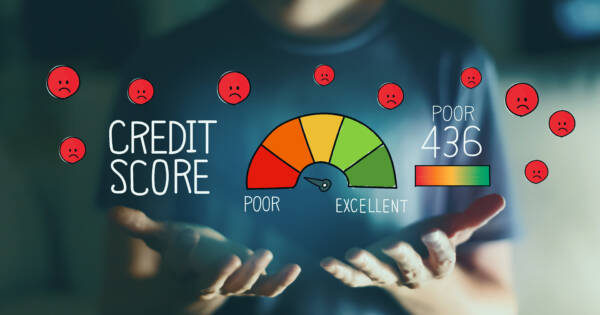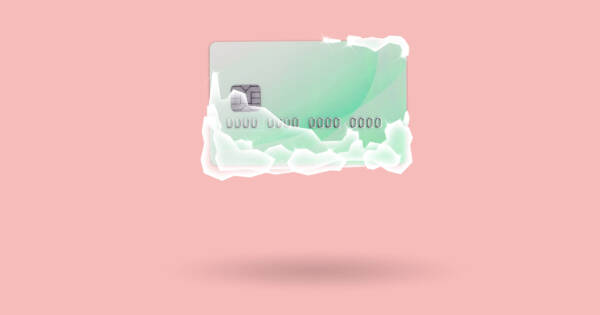Credit cards are a financial tool. When used properly, they can help you successfully manage a temporary financial emergency. They can also help you build a strong credit score that is advantageous when applying for major loans, like a mortgage. However, it’s easy to run into trouble with your credit cards. They can quickly become a major debt burden.
According to USA Today, Americans now owe more than $1.1 trillion in credit card debt. The average American credit card balance in America is $6,200. For families with multiple cards, those balances add up quickly. Knowing how credit cards work and what to look for when choosing one for yourself can help ensure that you use them properly. Pay attention to these key factors so you can avoid the various traps associated with them. Here are five things to consider when shopping for a credit card.
Annual Fees
Most credit cards aren’t free. The interest charged on the balance owed isn’t the only cost associated with owning a credit card. Many credit cards also charge an annual fee. These fees vary, but can range from a one-time charge of $25 to as much as $500. How high the annual fee is usually depends on the benefits or rewards associated with the card. The higher the annual fee, the more rewards the credit card usually provides. The fee is automatically charged to your account once a year. Like every other charge, you will have to pay interest on it if you don’t pay it off right away.
Credit cards that have an annual fee typically include reward cards, premium cards, or secured cards. The good news is that there are cards available that don’t charge any annual fee. Having a credit card without an annual fee makes the most sense financially.
However, if you do choose a card with an annual fee (because who doesn’t love better rewards?), make sure you know the amount before signing on the dotted line. You should also do some quick math. Make sure that the benefits you get from the card exceed the amount of the annual fee. For example, if your card has an annual fee of $129, but you barely use the card enough to earn $100 worth of points/miles/cashback per year, then you’re losing money.
Minimum Payment
Understanding the minimum monthly payment on any credit card is critically important. The terms of a card will require you to pay a minimum amount by a set date each month. The minimum payment it exactly what it sounds like. It represents the lowest amount you must pay each month. Minimum payments are typically calculated as a percentage of your outstanding balance on the credit card. The higher your credit card balance, the higher your minimum payment will be.
Take note that your card’s minimum payment is printed on the front of your monthly statement. You can also check your minimum payment online when you log into your account. Knowing the minimum payment and the penalties for failing to it will help you to avoid unwanted problems.
Penalties and Charges
Failure to make the minimum payment by the due date can result in hefty penalties. These penalties can include higher interest rates, the cancellation of rewards, and the outright cancellation of the card itself
Penalties associated with credit cards are no joke. In fact, penalty charges are what gets most people into trouble with their cards. Penalties don’t just apply to a missed minimum monthly payment, either. Additional charges and penalties are often applied on balance transfers, cash advances, and even if you apply to increase your credit limit or make a payment on the card by telephone.
There can also be penalty charges for paying your bill late or exceeding your credit limit. The penalties usually appear in the form of higher interest rates. For example, the interest rate charged on your card might be 18%, but it could jump to 26% if you take out a cash advance. Your rate could even go up permanently if you exceed your credit limit.
Understanding how any penalties work will help you to avoid getting yourself in over your head. When shopping for a credit card, look for one that has minimal penalties and reasonable (or no) fees. Look for a card that offers a grace period for late payments or one that does not charge you for transferring a balance. Always be sure to read the fine print when it comes to penalties and charges.
Rewards
Not all credit card reward programs are created equal. You’ll find that not all reward programs actually provide you much benefit. Many programs function more as an incentive to get you to use the card more, rather than as a means of providing you with meaningful rewards. In general, reward programs fall into one of three categories: cashback, points, or miles.
Cashback
However, be mindful that cash rewards don’t always pay you in cash. Most programs only allow you to redeem your cash rewards as a credit on your account. That cash credit often doesn’t even count as a payment, meaning that you’ll still have to make a minimum payment. Other cashback programs allow you to redeem your cash rewards for gift cards with your card issuer’s merchant partners. In rare instances, a credit card company will actually transfer the cashback you’ve amassed directly to your bank account.
Points and Miles
With point rewards, you earn points for each dollar you spend. One point per dollar is the industry average. Points can then be redeemed for merchandise in the reward program’s online shopping area. You may also be able to redeem your accumulated points for gift cards. However, there can be restrictions placed on the amounts of the gift cards, or they might expire if not used by a certain date.
Miles or travel reward cards provide you with miles that can be redeemed for airline tickets, rental cars, and hotels. The number of miles you earn varies by credit card. The number of miles you need in order to book a flight, rental car, or hotel also varies.
While credit card rewards can be beneficial, they can also be tricky. Be sure to check how and where the rewards can be used. You should also think about how likely you are to use them. For example, why pay a hefty annual fee just to accumulate air miles if you have no real desire to travel? In the end, you’ll want to choose a reward program that is not overly expensive and provides you with real, tangible benefits that you will use and enjoy.
Interest Rate
The single most important thing to consider when choosing a credit card is the interest rate charged on it. Known as the “Annual Percentage Rate” (APR), the interest is the cost of borrowing on the credit card. Unless you pay the entire balance owed on the card each month — which you should always do — you will incur interest charges.
In the U.S., the average interest rate on a card is 14.1%, according to a 2018 report by the Federal Reserve. That same report found that many cards charge as much as 30% interest. As already mentioned, higher charges can be applied for balance transfers, cash advances, and other transactions.
When choosing a credit card, it pays to compare the interest rates. Compare the APR for different types of credit cards and choose the one that will be cheapest for you to own and use. You should know that some cards offer a 0% interest rate, but only for a certain period of time. It’s usually just the first 12-to-18 months. These are often referred to as “introductory interest rates.” The rate will eventually increase, but it’s still good to avoid interest charges for a while. However, make sure to know how long the introductory rate lasts, as well as the interest rate when it ends. As a rule, you should always choose a credit card with the lowest APR or interest rate. This will save you a lot of money if you find yourself unable to pay the complete balance every month.
 Shutterstock
Shutterstock







